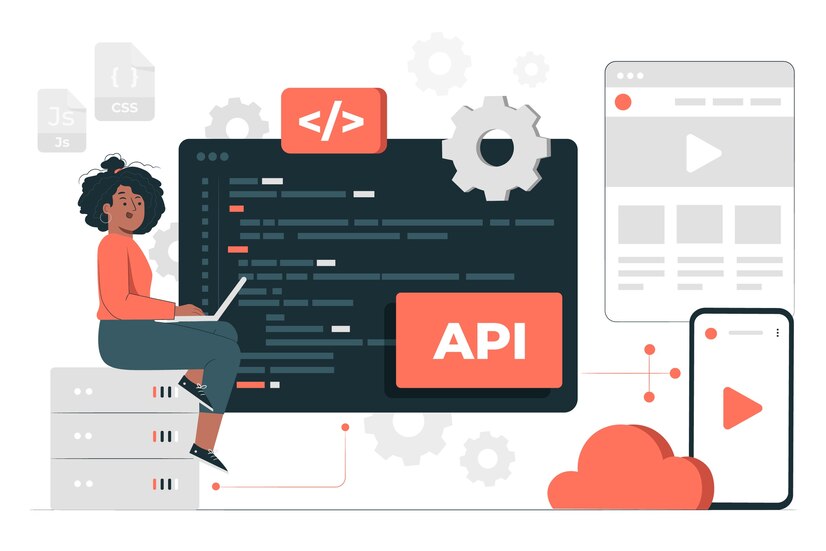In the digital age, a website’s performance can make or break a business. Visitors expect fast load times, seamless navigation, and a responsive experience across all devices. This is where modern web development frameworks like Angular come into play. Developed and maintained by Google, Angular is a powerful front-end framework that helps developers create dynamic, high-performance websites and applications.
- Faster Load Times with Single-Page Applications (SPAs)
One of the standout features of Angular is its ability to create single-page applications (SPAs). Unlike traditional websites, where each page load requires a new server request, SPAs load a single HTML page and dynamically update content without reloading the entire page.
This results in faster load times and a smoother user experience, as users don’t have to wait for each new page to load. With Angular, your website can deliver content quickly and efficiently, which can improve user engagement and reduce bounce rates.
- Optimized Data Binding for Performance
Angular uses two-way data binding, a technique that ensures that changes in the user interface (UI) automatically reflect in the application data and vice versa. This synchronization reduces the need for manual DOM manipulation, making it easier and faster to update content in real-time.
By handling data more efficiently, Angular minimizes the amount of work the browser has to do, leading to better performance and faster response times. This is particularly useful for websites that handle a lot of user interactions or dynamic content, such as e-commerce platforms or dashboards.
- Efficient Rendering with Ahead-of-Time (AOT) Compilation
Angular uses a feature called Ahead-of-Time (AOT) Compilation, which compiles your code before the browser loads it. In traditional frameworks, the code is compiled at runtime, which can slow down your website’s initial load time. With AOT, Angular converts your HTML and TypeScript code into JavaScript during the build process, resulting in faster rendering once the website is loaded.
This leads to improved performance by reducing the amount of processing the browser needs to do, allowing users to access and interact with the site more quickly.
- Lazy Loading for Better Resource Management
Angular supports lazy loading, a technique where certain parts of your website are only loaded when needed. Instead of loading all the resources at once, Angular divides your application into modules and only loads the ones necessary for the user’s current view.
This drastically reduces the initial load time and speeds up the overall performance, especially for websites with multiple pages or complex structures. Lazy loading also ensures that users don’t waste bandwidth on content they’re not viewing, leading to a more efficient and responsive experience.
- Built-In Tools for Debugging and Optimization
One of the reasons Angular is a popular choice among developers is the robust set of tools it offers for debugging and optimization. Angular’s built-in development tools allow developers to track performance, catch errors early, and make adjustments that lead to smoother website functionality.
Features like Angular CLI (Command Line Interface) simplify tasks like optimizing images, managing scripts, and minifying files, which further enhances website speed and performance. These tools help ensure that your website is running as efficiently as possible, with fewer bugs and smoother performance.
- Cross-Platform Responsiveness
In today’s mobile-first world, ensuring that your website works seamlessly across devices is essential. Angular is known for its cross-platform responsiveness, meaning it can create websites and apps that perform consistently on desktops, smartphones, and tablets.
With features like progressive web applications (PWAs), Angular allows developers to build websites that look and feel like native mobile apps. This ensures a fast, responsive, and consistent user experience, regardless of the device being used.
- SEO-Friendly Development
Performance isn’t just about speed—it also impacts how search engines rank your website. Google’s algorithms prioritize fast, mobile-friendly sites in search results, and Angular has built-in features that make SEO optimization easier.
Angular Universal, for example, enables server-side rendering (SSR), which improves your website’s visibility to search engines by allowing it to be crawled and indexed more effectively. With faster load times and better content indexing, Angular-built websites are more likely to rank higher in search results, driving more traffic and boosting performance metrics like page views and conversions.
- Scalability and Long-Term Maintenance
As your website grows, so will its performance needs. Angular’s modular structure makes it easy to scale your website as your business expands. The framework allows developers to break down your application into smaller, reusable components, making it easier to manage large projects without sacrificing performance.
Angular’s strong community support and regular updates from Google also ensure that your website remains secure and up to date with the latest performance improvements, reducing the long-term costs associated with maintenance and upgrades.
Conclusion
Angular development services offer a robust solution for businesses looking to improve their website’s performance. From faster load times and responsive design to built-in SEO features and scalability, Angular’s tools and capabilities make it an ideal framework for building high-performing websites and applications.By choosing Angular for your next web development project, you can create a faster, more efficient, and user-friendly website that not only enhances the user experience but also boosts your business’s overall performance. Whether you’re developing a small business website or a large-scale enterprise platform, Angular provides the flexibility, speed, and performance needed to succeed in today’s competitive online environment.






